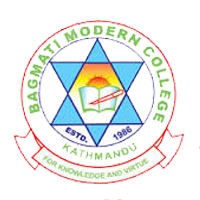Overview
BBS at Public Youth Campus, Dhobichaur, Kathmandu
Bachelor of Business Studies (BBS) at Public Youth Campus (PYC), Tribhuvan University (TU), serves students who want a grounded business degree guided by TU’s Faculty of Management in Kathmandu.
The program builds a steady base in accounting, economics, finance, business law, marketing, and organization studies, then moves toward advanced courses, project work, and viva as prescribed by the university.
The campus delivers BBS from its Dhobichaur–Chettrapati location. Students gain access to nearby banks, trading firms, travel houses, and audit offices for short field tasks, interviews, and data collection that support assignments and reports.

Highlights
-
Affiliation: Tribhuvan University, Faculty of Management; PYC is a constituent public campus in Kathmandu.
-
Duration: Four academic years under the TU framework.
-
Academic System: Annual examinations conducted by TU, with internal assessments/practicals where specified in the syllabus.
-
Course Spread: Accounting, finance, economics, statistics, business law, marketing, organizational behavior, entrepreneurship, and research methods.
-
Learning Evidence: Classroom exams, term work, report writing, and viva as per TU rules.
-
Location Advantage: Central Kathmandu access for document collection, interviews, and part-time roles compatible with study.
Curriculum Details
BBS follows TU’s subject grid. The curriculum begins with foundations in language, economics, and quantitative tools, then adds business law, accounting, and functional subjects. Later years introduce higher-level finance, cost and management accounting, marketing management, operations, and strategic topics. A small project or practical component appears where the syllabus calls for it.
Core Study Areas
-
Accounting and Auditing: Financial accounting, cost and management accounting, taxation basics, and auditing principles.
-
Finance and Banking: Fundamentals of finance, money and banking, financial management, financial institutions in Nepal.
-
Economics: Microeconomics and macroeconomics focused on business applications in the Nepali economy.
-
Quantitative Tools: Business mathematics and statistics to support reports, forecasts, and decision-making.
-
Business Law and Governance: Nepalese commercial law, company law, and introductory corporate governance norms.
-
Management and Strategy: Principles of management, organizational behavior, human resource topics, and strategic overviews.
-
Marketing and Operations: Consumer concepts, product and pricing decisions, channels, and an introduction to operations.
-
Research Orientation: Business research methods, report writing practice, and viva where prescribed.
Electives and Focus
Elective options vary by year. Students usually indicate interests in accounting, finance, or marketing by the final stretch of the degree. Campus-level guidance helps students line up electives with intended roles, for example tax and audit support, bank operations, or sales coordination.
Objectives
-
Strong Fundamentals: Build clear subject knowledge across business functions with Nepal-specific law and policy context.
-
Applied Skills: Translate theory into routine office tasks—reconciliation, vouchers, basic financial analysis, inventory checks, and document reviews.
-
Communication: Improve written and spoken clarity through report writing, presentations, and viva.
-
Pathway to Higher Study: Prepare students for master’s-level management programs after meeting the university’s entry requirements.
Scope
BBS graduates find entry roles in banks, microfinance, savings and credit cooperatives, trading companies, manufacturing units, logistics and retail, audit firms, insurance branches, and public or development offices. Students who intend to continue study use the BBS transcript to seek admission to master’s programs in management or economics, subject to eligibility announcements.
Learning Outcomes
Students who complete BBS at PYC should be able to:
-
Produce basic financial statements, reconciliations, and cost sheets.
-
Apply economic and statistical ideas to straightforward business questions.
-
Summarize company law provisions that affect common office procedures.
-
Draft simple marketing and sales notes with data support.
-
Prepare short research assignments and defend findings during viva.
-
Follow TU formats, deadlines, and examination protocols with consistency.
Skill Development Modules
-
Numerical Confidence: Business mathematics and statistics nurture accuracy under exam conditions and workplace timelines.
-
Accounting Habits: Recording, posting, adjustment, and closing entries train students for audit season and monthly closures.
-
Documentation: Business law and communication courses set standards for writing clean minutes, letters, and memos.
-
Teamwork: Group tasks and presentations encourage peer learning and shared responsibility.
-
Study Discipline: Annual exam preparation requires planning, revision cycles, and past-paper practice.
Teaching Methodology
Public Youth Campus applies lectures, tutorials, guided problem sets, case briefs, and presentation days aligned to TU’s course outlines. Teachers share reading lists and internal assessment windows early in the year. Students receive feedback on written work and short presentations to improve structure and clarity.
Admission Requirements
-
Eligibility: Completion of Ten Plus Two (10+2) or PCL recognized by TU. Many applicants come from Commerce, but students from other streams apply as well if they meet the university’s conditions. English as a full paper at the 10+2/PCL level is typically expected.
-
Selection: Campus follows TU directions for merit-based admission and may use screening steps announced in the yearly notice.
-
Documents: Academic transcripts, character certificate, migration where applicable, photographs, and any items listed in the campus notice.
-
Key Advice: Keep scanned copies ready and submit forms within the deadline. Use the campus contact desk for clarifications on equivalence, gap years, or transfer cases.
Career Opportunities
-
Banking and Finance: Customer desk, teller support, documentation, card and remittance units, junior credit assistance.
-
Accounts and Audit: Vouchers, ledger maintenance, reconciliations, stock and asset verification, support during audit periods.
-
Sales and Operations: Store control, dispatch coordination, purchase follow-ups, sales documentation.
-
Insurance and Cooperatives: Policy service desk, claims support, cooperative administration records.
-
Public and Development Sector: Data entry, record management, and program documentation in offices that value accurate files and basic analysis.
-
Pathway to Masters: MBS/MBM/MTTM/MBA applications after meeting intake rules.
Scholarships and Financial Aid
Scholarships and fee concessions are announced as per TU and campus rules for each intake. Students should watch campus notices for merit and need-based windows, required evidence, and deadlines.
Why Choose This Course?
-
Recognized Public Degree: TU curriculum delivered at a constituent campus with clear annual exam routines.
-
Steady Pathway: A predictable subject grid that suits students who prefer systematic preparation and strong fundamentals.
-
City Access: Dhobichaur location supports field tasks, internship interviews, and document collection without long travel.
-
Libraries and Labs: Reading rooms and computing facilities that match assignment needs and exam preparation.
-
Support Culture: Faculty maintain office hours and provide guidance on writing, calculation, and presentation skills.
Conclusion
BBS at Public Youth Campus suits students who want a thorough, Nepal-focused business education under the Tribhuvan University framework. The program’s structure, exam rhythm, and subject mix build habits that matter in offices across banking, trade, and services. Thoughtful planning, regular practice, and clean documentation will help you complete the degree on time and prepare for early roles or postgraduate study.
FAQ
Is BBS a four-year program?
Yes. The degree runs across four academic years under the TU framework.
Does BBS follow an annual exam system?
Yes. TU conducts annual examinations, and internal/practical components apply where the syllabus specifies.
Can non-commerce students apply?
Yes. Applicants from other streams may apply if they meet TU’s eligibility conditions and any campus screening steps.
What kind of roles do BBS graduates get?
Entry roles in banks, cooperatives, accounts and audit support, operations, sales coordination, and public or development offices.
Does BBS include a project or viva?
Yes. TU prescribes report writing and viva elements in specific courses; the campus coordinates the schedule.























